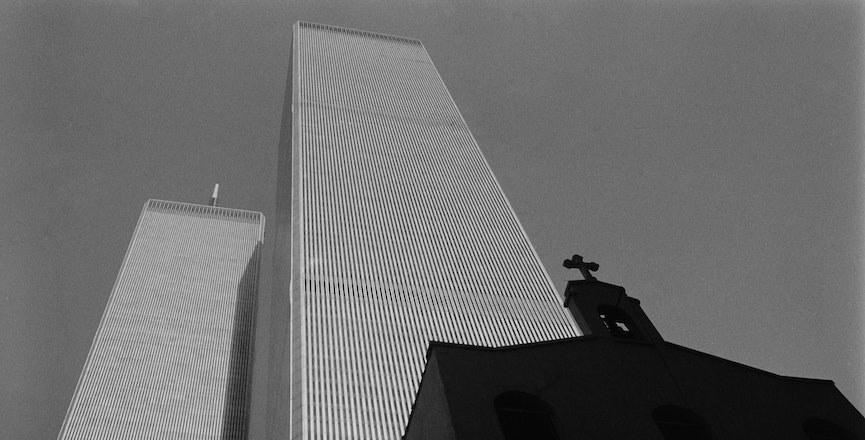Talk about blowback.
Where did Thursday’s slaughter at Kabul’s airport come from — that turned what only looked like chaos into vrai chaos? It came from ISIS-K, which came from ISIS.
Where did ISIS come from? From the U.S. invasion of Iraq that toppled the stable regime of Saddam Hussein. Where did that invasion come from? The false U.S. claim that Saddam was connected to 9/11.
Where did 9/11 come from? Al-Qaeda. Where did al-Qaeda come from? At least partly from U.S. policy that encouraged Islamist groups in Afghanistan to attack Soviet troops there in the 1980s to destabilize the U.S.S.R. and win the Cold War for the U.S. It worked. Now their successors attack Americans trying to leave Afghanistan. Why are Americans there? Because of 9/11. It keeps returning to 9/11.
9/11 also has antecedents, but it has dominated the 21st century. The Line’s editor says, “for many of us 9/11 remains the single most important geopolitical event of our lifetime.” To the extent this is so, it’s dismaying. Why?
As atrocities and crimes against humanity go, 9/11 was middling. It snuffed out 2,977 utterly innocent lives. That isn’t abnormal for heinous acts. It’s not the release of gas in the First World War, Hiroshima, the Holocaust, or Indigenous genocides in the Americas. Nor was it an “existential” threat to the U.S. Basic institutions weren’t remotely shaken. The attack on the U.S. capitol on Jan. 6 was probably more existentially perilous.
But two traits marked 9/11. It was spectacular; in seconds it obliterated a grandiose symbol of U.S. global power. And it was seen by U.S. leaders as an “opportunity.” They called it that and demanded it be seized. Many belonged to a group called the Project for a New American Century that wanted to capitalize on the Soviet Union’s demise. 9/11 was their chance to remake the world.
Osama bin Laden could’ve been eliminated by U.S. dark ops without invading Afghanistan, Iraq, Libya, etc. But that wouldn’t have justified redrawing the global map. So wars, occupation and chaos ensued.
I once vainly hoped 9/11 might awaken empathy in Americans toward nations they’d themselves bombed or invaded: Haiti, Guatemala, Vietnam — what a fantasy. A few years later, Osama bin Laden offered a similar delusion as the motive for 9/11. As he watched U.S. bombs destroy towers in Lebanon in 1982, “it occurred to me to punish the unjust the same way (and) destroy towers in America so it can taste some of what we are tasting and stop killing our children and women.” I wonder if, any time before his demise, he reflected on how excessively rational and optimistic he’d been about human nature.
Till Thursday, it looked like the invaders would finally exit Afghanistan and that might mean the end of the 9/11 era. One hopes they still will, though it won’t be a clean getaway — another fantasy. Then, on to fresh disasters.
Canada got in largely to compensate for not participating in the U.S. war on Iraq. Our effort was tainted by a scandal, where our troops handed prisoners to Afghan jailers who sexually and physically abused them. Then humiliation came when U.S. troops replaced us in Kandahar and didn’t acknowledge our role, much less honour it. Such is the fate of subordinates in an imperial order.
OTOH, we can learn from disasters in ways Americans don’t, because they’re wholly inside their imperial bubble. David Leonhardt, an incisive U.S. journalist, wrote this week that the U.S. erred by seeking “total victory in a faraway war of questionable relevance to U.S. national interests.” Only a superpower would even entertain the idea of initiating distant wars for the sake of their interests. We were in Afghanistan solely because pleasing the U.S. seemed in our interest.
Yet we’re not fully outside their bubble either. As The Line editor wrote, a shock to Americans was the defining political experience for many Canadians.
I’ve been writing obsessively on 9/11 since then. I even wrote a piece called “He won’t stop writing on the war.” But is it really over? It’s at least a chance to reach escape velocity. (The rise of China helps.) So goodbye 9/11, with fingers crossed.
Rick Salutin writes about current affairs and politics. This column was first published in the Toronto Star.
Image credit: Steve Harvey/Unsplash



